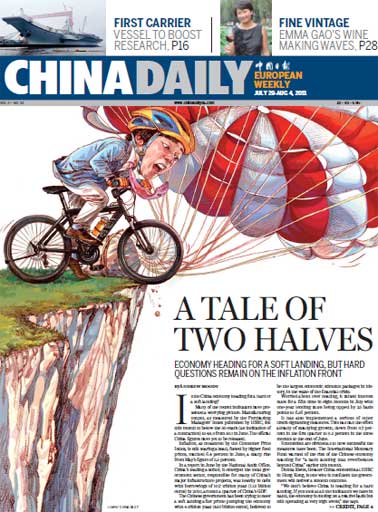Diplomatic and Military Affairs
UK, Japan warn of disaster if no US debt deal
Updated: 2011-08-01 09:03
* Foreign governments say still optimistic deal can be reached
* But Britain sees risk of damage around the world
* Chinese, euro zone officials denounce US politicians
* Central banks able to provide emergency funds if needed
LONDON/TOKYO - British and Japanese officials warned on Sunday of disastrous consequences for the global economy if last-minute talks among lawmakers in Washington failed to agree on raising the US borrowing limit and averting a debt default.
Governments across the world fear that because of the key role of the US dollar in global banking and trading systems, there could be severe instability when Asian financial markets reopen on Monday if a US debt deal is not in sight by then.
In Washington, Senate Minority Leader Mitch McConnell, the top Senate Republican who is playing a key role in the debt talks, said "we're very close" to a $3 trillion deal that would raise the debt ceiling while cutting the US budget deficit.
But a senior White House official warned that an agreement was "not there yet."
"If they get this one wrong and there's a default -- we don't expect that, we think that they will sort this out -- but if that were to happen, it has consequences for every family and every business in this country and all across the world," said Danny Alexander, Chief Secretary to the British Treasury.
"I think in the end the politicians on Capitol Hill can see that the precipice they are looking over is one that they are going to step back from," Alexander told BBC television.
"But it is something that would have a big effect on the global financial system and on the global economy, where the United States is one of our major trading partners, that could have really big implications for the United Kingdom."
In Tokyo, sources familiar with Japan's international and monetary affairs said they were increasingly concerned that markets might be too optimistic about prospects for a lasting solution to the crisis.
Japanese officials still hope Washington can strike a deal and if that proves impossible, will give priority to interest payments to international holders of US Treasury debt to limit the immediate market impact, the sources said.
But Tokyo's concern is that if the crisis drags on without a clear and long-term solution, markets may be thrown into turmoil in the same way that they suffered when US investment bank Lehman Brothers collapsed in September 2008.
"If there is a default, the impact on global markets will be huge," said one of the sources, who declined to be named because of the sensitivity of the matter.
Another Japanese source said, "Nobody thought Washington would let Lehman collapse. But look what happened."
US lawmakers have set themselves a Tuesday deadline to reach agreement and the US Treasury has said it will run out of borrowing room on that day, although analysts think the government may have enough cash to keep servicing its debt and paying its bills through the middle of this month.
On Friday a senior economic policymaker in the euro zone, who declined to be named, told Reuters he was optimistic Washington would solve the problem but expressed surprise and anger that US politicians were "playing chicken" with an issue of such importance for the global economy.
Euro zone leaders are struggling to control sovereign debt crises in several countries in their region, and the US debt problem is making this more difficult by adding to upward pressure on the yields of government bonds in those weak states.
If there is no US debt deal by Monday morning, central banks around the world are expected to stand ready to provide emergency supplies of money to commercial banks in case the banks become too nervous to lend to each other.
Japan's first defence will be to ensure that Japanese financial institutions have a sufficient supply of dollars, the sources in Tokyo indicated.
The Bank of Japan believes Japanese commercial banks have sufficient dollar cushions but will use its dollar swap arrangement with other central banks to prevent a dollar squeeze in case of market turmoil.
In late June, the US Federal Reserve agreed to extend liquidity swap arrangements with other major central banks until August 1, 2012.
The Japanese central bank is also prepared to flood markets with yen through its open market operations in case interbank borrowing costs spike, BOJ officials say.
In Europe, there were minor signs of strain in the money markets last week with some banks becoming unable to take out longer-term dollar loans, but the effect was small since banks still expected Washington would reach a deal.
The European Central Bank already offers unlimited euro loans to banks in some of its money market operations as part of its response to past crises, and it could use that policy to cope with any market problems this week.
A spokesman for the Swiss central bank said, "The Swiss National Bank is ready to react appropriately at any time to market disruptions."
E-paper

Double vision
Prosperous Hangzhou banks on creative energies to bridge traditional and modern sectors
Minding matters
A touch of glass
No longer going by the book
Specials

Carrier set for maiden voyage
China is refitting an obsolete aircraft carrier bought from Ukraine for research and training purposes.

Pulling heart strings
The 5,000-year-old guqin holds a special place for both european and Chinese music lovers

Fit to a tea
Sixth-generation member of tea family brews up new ideas to modernize a time-honored business
